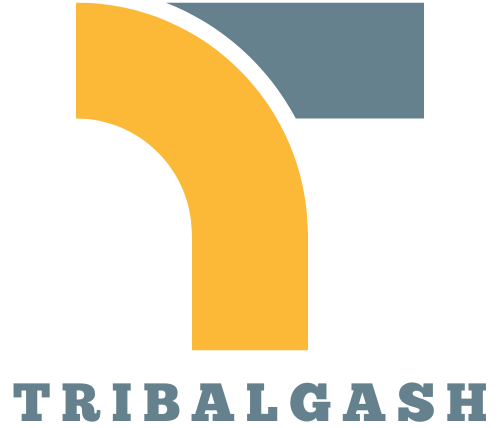In today’s fast-paced world, setting career development goals isn’t just a nice-to-have; it’s a must-have. Think of it as your GPS for navigating the wild terrain of professional life. Without clear goals, one might end up in a job they don’t love, wondering how they got there—like a tourist in a foreign country without a map, trying to ask for directions in mime.
Table of Contents
ToggleUnderstanding Career Development Goals
Career development goals provide direction in professional journeys. These goals serve as benchmarks that guide individuals toward fulfilling and rewarding careers.
Definition of Career Development Goals
Career development goals refer to specific objectives set by individuals to advance their professional skills and achievements. These goals can encompass various aspects, including acquiring new skills, earning certifications, or aiming for promotions. Individuals must align these objectives with their personal values and career aspirations. Clear goals can empower individuals to take actionable steps, enhancing their career trajectories. Tracking progress toward these goals ensures continuous growth and development.
Importance of Setting Goals
Setting career development goals is crucial for maintaining focus in a competitive job market. Such goals help clarify priorities and provide motivation during challenging times. Research shows that individuals with clearly defined goals are more likely to succeed in their career paths. Accomplishing these objectives fosters a sense of achievement and boosts confidence. Regular goal evaluation encourages adaptability in response to changing circumstances. By regularly reassessing goals, individuals stay aligned with their evolving aspirations.
Types of Career Development Goals
Career development goals can be categorized into short-term and long-term objectives. Both types play a crucial role in guiding professionals toward their aspirations.
Short-Term Goals
Short-term goals focus on immediate advancements in a career. These objectives typically span a few months to a year. Acquiring new skills through workshops or online courses can enhance one’s capabilities. Attaining specific certifications like Project Management Professional or Google Analytics can improve employability. Seeking mentorship opportunities provides valuable guidance and insight. Engaging in networking events helps establish crucial industry connections. Prioritizing these goals offers tangible benefits, ensuring continuous growth while laying the foundation for future success.
Long-Term Goals
Long-term goals set the stage for career aspirations over a period of five years or more. Aiming for higher positions, such as management roles or specialized areas, drives motivation. Developing a comprehensive plan for professional growth ensures consistent alignment with personal values. Pursuing advanced degrees, such as MBAs or industry-specific certifications, can significantly enhance expertise. Building a personal brand through thought leadership reinforces one’s professional identity. Identifying these aspirations creates a roadmap for progress and commitment, facilitating sustained success in the workforce.
Strategies for Setting Career Development Goals
Effective strategies exist for setting career development goals. These strategies provide clarity and direction, facilitating meaningful progress.
SMART Goal Framework
Utilizing the SMART goal framework ensures goals are Specific, Measurable, Achievable, Relevant, and Time-bound. Specific goals clarify what needs to be accomplished, while measurable components track progress effectively. Achievable aspects consider realistic expectations, promoting motivation through achievable milestones. Relevant goals align with individual values and career aspirations, establishing personal significance. Time-bound attributes impose deadlines that encourage urgency, fostering commitment. For example, a specific goal could involve completing a certification in six months to enhance professional skills.
Self-Assessment Techniques
Implementing self-assessment techniques plays a crucial role in identifying strengths and areas for growth. Techniques such as reflective journaling facilitate personal insight, allowing individuals to understand their career aspirations better. Utilizing feedback from peers and mentors provides external perspectives on skills and competencies. Regularly taking career assessments can help uncover hidden talents and interests, guiding goal-setting efforts. Establishing a routine for self-reflection promotes continuous evolution, ensuring alignment with changing aspirations. These techniques foster a deeper understanding of oneself, enhancing the effectiveness of career development goals.
Overcoming Challenges in Career Development
Navigating career development presents various challenges. Understanding common obstacles and maintaining motivation is essential for progress.
Common Obstacles
Individuals often face time constraints that hinder their ability to pursue career development objectives. Limited resources, such as financial support for courses or certifications, can create barriers as well. Additionally, lack of clarity regarding specific goals can lead to confusion and stagnation in career trajectories. Overwhelming competition in the job market adds another layer of difficulty. Balancing personal and professional commitments can complicate the pursuit of new skills or advancements. Each of these factors impacts motivation and progress, making it vital to identify and address them proactively.
Tips for Staying Motivated
Setting small, achievable milestones helps maintain enthusiasm over time. Creating a vision board can visually reinforce long-term aspirations and make goals tangible. Engaging with support networks, including mentors and peers, fosters accountability and encouragement. Regularly revisiting and adjusting goals ensures alignment with evolving interests and external conditions. Celebrating accomplishments, even small ones, boosts morale and strengthens resolve. Staying informed about industry trends can also inspire new objectives and a commitment to ongoing growth. Emphasizing personal values while pursuing career goals maintains a sense of purpose and direction.
Setting career development goals is essential for navigating today’s complex job market. These objectives not only provide direction but also foster a sense of purpose and achievement. By categorizing goals into short-term and long-term aspirations, individuals can create a structured roadmap that aligns with their personal values and ambitions.
Embracing the SMART framework ensures these goals are clear and attainable. Regular self-reflection and assessments help maintain alignment with evolving aspirations, while addressing potential challenges keeps motivation high. Ultimately, prioritizing career development goals equips individuals with the tools they need to thrive, adapt, and succeed in their professional journeys.









